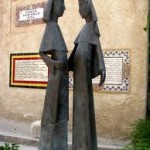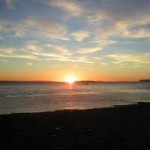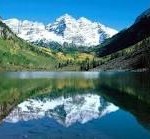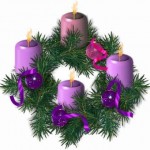Second Sunday of Advent – Cycle B
Reflecting on Mark 1: 1-8
When I hear about John the Baptizer dunking Israelites in the Jordan I remember a tender moment with my friend Charles Onofrio, the great lion of God who went home to heaven last year. No one loved Jesus and the Church more than Chuck, and no one was more receptive to and educated about the reforms of Vatican II than this eloquent Catholic lawyer.
But the first time Chuck observed the catechumens preparing for baptism being led from the church after the homily he was outraged. “Well, I’m not standing for this. If they can’t stay for Communion then neither can I. I’m a greater sinner than any of them. How dare I stay when they are being asked to leave?”
It took a few words of kind explanation from the great Bishop George Evans to help Chuck understand that this was the new rite of initiation for converts to the faith. Their dismissal is not―good heavens! ― because they are sinners and we aren’t. They are dismissed in front of us so they can go for catechesis together, and so we can pray for them every step of the way.
Chuck became the lead catechist in the parish, and must have prayed hundreds of new Catholics to the baptismal font over the next thirty-five years. But I think he secretly liked the style of that wild, locust-eating Baptist, who dragged his own people―not those converting to Judaism, but lifelong, faithful Jews― out into the desert and got them to admit that THEY were sinners and that THEY needed a baptism of repentance.
Advent is such a quiet, reflective season. Listen carefully. A voice is crying out in the wilderness.
What is the voice of John the Baptist saying to you?
Kathy McGovern ©2017




